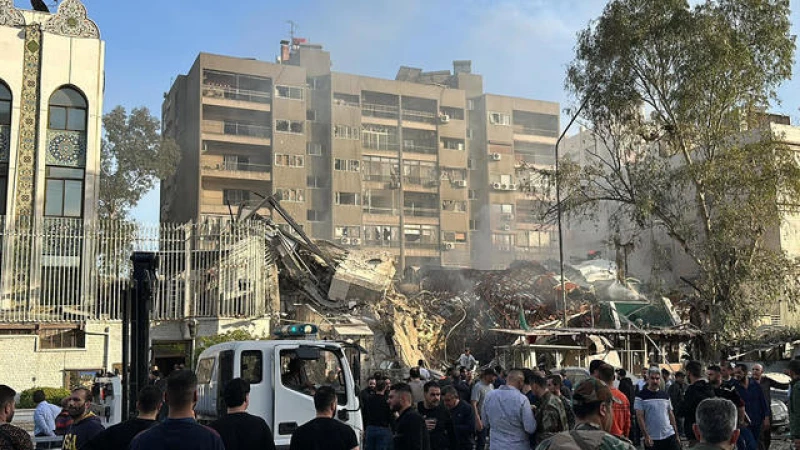Israel and the U.S. are convinced Iran is preparing to retaliate for the Israeli strike on an Iranian consulate in Syria, U.S. officials say.
Israel on Monday struck an Iranian consulate in Damascus, Syria, and killed a "handful" of leaders of Iran's Islamic Revolutionary Guard Corps, according to the Pentagon.
The Iranians are now planning a retaliatory attack with a swarm of Shaheed loitering drones and cruise missiles, the officials believe. The timing and target are unknown, but a proportional response to the Damascus attack would be to hit an Israeli diplomatic facility.
There are a number of dates associated with the end of Ramadan that would be symbolic from an Iranian perspective. For instance, April 5 is known as Al-Quds day, a day to express support for the Palestinian people. April 6 is considered "The night of power," a night when deeds are magnified by 1,000. However, the intelligence estimate is that retaliation is more likely to occur next week.
Another important unknown is where the drones and missiles would be launched — from Iraq or Syria, which could prompt a thin claim of deniability by Tehran — or from Iranian territory.
During the funeral ceremony, Gen. Hossein Salami, the overall commander of the IRGC, issued a stern warning to Israel, stating that they "cannot escape the consequences" of targeting Iranian military officials. However, no specific details were provided regarding how or when Iran might retaliate, according to Bathaei.
In an effort to avert any Iranian reprisals against U.S.-linked facilities, officials from the Biden administration have emphasized that the U.S. was not informed in advance about the attack.
John Kirby, the National Security Council coordinator for strategic communications, mentioned that during a recent phone call with Israeli Prime Minister Benjamin Netanyahu, President Biden discussed the threats posed by Iran to Israel.
Publicly, Israeli officials have already issued warnings about retaliating, indicating that any Iranian strike on an Israeli facility could escalate tensions further and potentially lead to a regional conflict.







